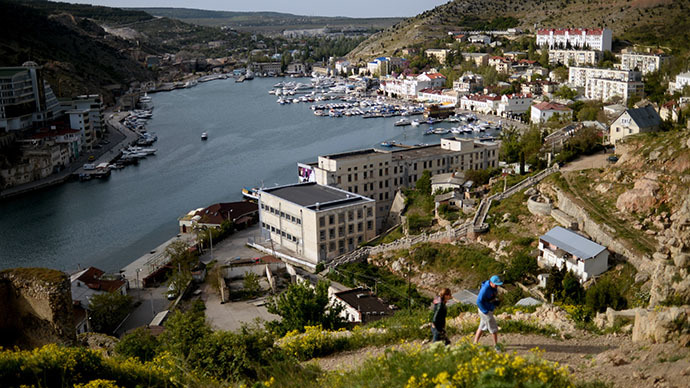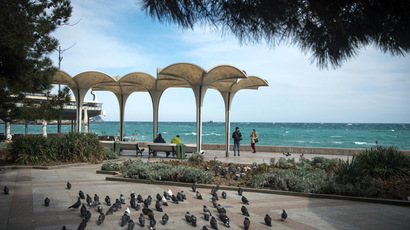Russia’s ‘civilized’ offshore? Moscow allocates $1.5 bn for Crimea

$1.5 billion (55.4 bln rubles) has been allocated by Moscow to the Russian republic of Crimea and Sevastopol to balance its budget in 2014. But what is on Moscow’s mind regarding the peninsula?
Earlier, Russia’s Finance Ministry earmarked $6.9 billion (243 billion rubles) in financial support for the country’s brand new subjects, and estimated that the Crimean Peninsula will be deficit- and aid-free by 2017.
Euphoria upon returning under the safety of the Russian flag seems endless in Crimea and the traditional countrywide May vacation period undoubtedly adds to the sense of jubilation and hope for a better future. The monotony of a daily routine should soon settle, however, and the region’s prosperity now highly depends on active steps by the government in search for the winning road map.
Long-term tax exemptions for new enterprises, scrapping of VAT in the service sector, attracting investments through incentives and, most importantly, cutting red tape in all spheres have been necessary prerequisites in the grand scheme for the development of Crimea and Sevastopol. This approach has led to the idea of creating a special economic zone in this region, announced by Prime Minister Dmitry Medvedev at the end of March.
“The special economic zone in Crimea will be based on best examples in world practice and we are not going to substitute the Ukrainian system for a Russian one. We have a unique opportunity to capitalize on the current lack of a bureaucratic chokehold in Crimea. Our goal is to not make Crimea just like Russia, but a lot better and then spread the model throughout the country. The draft law regarding the special economic zone on the peninsula is in the making and we tried to include as many things that are on the minds of officials and business community as possible,” the minister for Crimean Affairs, Oleg Saveliev, told Russia’s Vedomosti newspaper.
Cutting the infamous Russian red tape is a priority for the advancement of the entire peninsula. One of the potential novelties under discussion is the creation of a so called “civilized” offshore zone that allows litigation under British jurisdiction with mutual consent as well as in Russian arbitration courts. However, it’s not yet clear how English law could be applied on a territory that’s yet to be recognized by the United Nations.
Though British legislation appears more flexible, Oleg Saveliev warns that there will be absolutely no room for money laundering and the legal source of funds is a matter of principle. The target is to create a special environment for investors and businesses to operate in a sphere of minimal bureaucratic administration where issues of land management and acquisition would be streamlined at a much faster rate.
Russia’s Economic Development Ministry has named two categories of investors in Crimea’s special economic zone who will be exempt from all taxes, except excise duties and a 10 percent income tax. They are residents who invest directly into the peninsula and portfolio investors with local profit centers for investment outside Crimea. To claim benefits, the residents will be required to invest $4.3 million (150 million rubles) into projects in the Republic of Crimea, or Sevastopol, and the same goes for portfolio investors who will have to show this amount in registration fees.
The government is also looking into a “free port” scenario, where the customs section will be located outside its boundaries and ships will be able to dock without having to go through lengthy border crossing formalities.
The Russian Republic of Crimea and Sevastopol’s closest geographical neighbor, Ukraine, has the potential to become the main source of investment into the region and officials are ready to give the necessary guarantees and assistance to businesses from across the border.
“Maintaining cooperation with Ukrainian partners is one of my top priorities. We have good quality, cheap products from Ukraine in Crimea, hence we have retailers from there as well, and most of whom have good standing with us. If we were to substitute them with entirely Russian chains it would lead to a price hike,” RIA Novosti reported Crimean Affairs minister Saveliev as saying.
The special economic zone will include the entire territory of the Crimean peninsula and that will allow tax-free delivery of goods to the region, while domestic products will be marked as made in the Customs Union.














